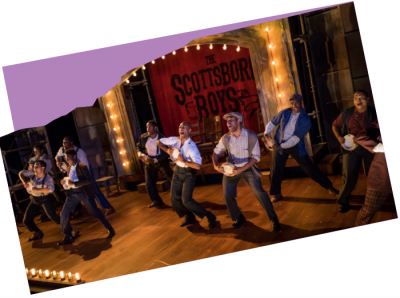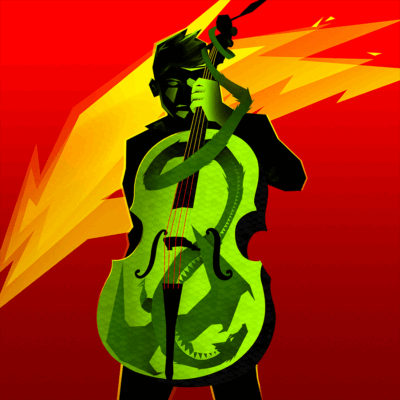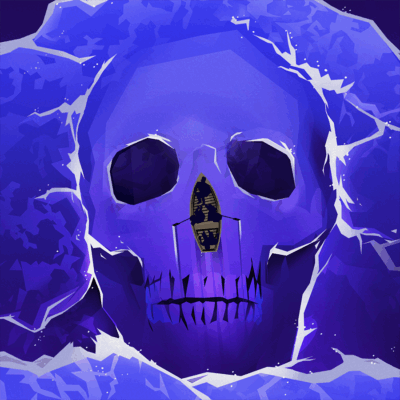Your donation sets the stage for a new season of Boston's most intimate, entertaining and provocative plays and musicals. Our shows make powerful connections with our audiences-- and they are only possible because of you.
Playwright Jaclyn Backhaus


Playwright Jaclyn Backhaus
Playwright Jaclyn Backhaus has been fascinated by John Wesley Powell’s 1869 expedition to chart the Colorado River ever since she was a young girl, but it wasn’t until 2015 that she claimed the narrative as her own. The result was MEN ON BOATS, which landed Backhaus on the acclaimed Kilroy’s List, and most recently helped earn her a coveted spot as one of five New Writers in Residence at New York’s Lincoln Center Theater.
Recently SpeakEasy staffer Jennifer Morris spoke by phone with Ms. Backhaus about the inspiration, struggle, and glory that is MEN ON BOATS.
Jennifer Morris (JM): The first time that you saw a full production of MEN ON BOATS, what was your favorite part, or the thing that surprised you the most?
Jaclyn Backhaus (JB): I think my favorite part of that first production was the moment when we meet everybody and get a little glimpse into the dynamics of each boat, as though they are little scenes in college-dorm-roommate life. You realize that every boat has an identity, and it’s just fun to meet all of the characters. I loved the experience of watching the audience realize that they were in for a bit of an adventure, a bit of a comedy, and that it’s okay to laugh at these people. I also love when all the boats come together for the dinner scene towards the latter half of the play. It brings to life the joy of a good ensemble.
JM: It’s funny you should mention that “college roommate” feeling; there is a similar camaraderie there. You have this random group of people that you’re meeting for the first time, going to dinner together, and going on this huge adventure together, but you don’t quite know what you’re in for.
JB: Exactly. There’s a bit of feeling like, “Okay, I have to trust this person with my life but I don’t even know who they are or what they like or don’t like.”
JM: How did you arrive at the title, MEN ON BOATS?
JB: The title came pretty early in the first draft. It sets up the play very nicely. We know there’s an element of adventure. We know that we’re maybe going to subvert at least one of these nouns, if not both, and then that becomes the joke: it’s about men on boats, but here are neither men nor boats.
JM: You grew up in Arizona, so you were familiar with John Wesley Powell’s story, correct?
JB: Yes, I learned about the expedition in 4th grade history class, and I always knew there was a lake named after him. My dad is very interested in explorer tales, and he had a copy of Powell’s journals that I would flip through as a kid. I didn’t return to them until much later. There are some really beautiful illustrations in the journal that were added in later publications, depicting certain terrifying scenes. One of them is [Powell] hanging off the side of a cliff with his one arm, and that was always very striking to me as a child. I remember flipping to the end thinking, “Did he die? Did he fall of the cliff and die?” I was fascinated with the terror of it, and that always stuck with me.
JM: There’s a childlike innocence or playfulness in the tone of MEN ON BOATS that made me feel like I was a kid again, just playing with my friends, acting out the exploration.
JB: That tone has definitely sprung from a place of childhood. As a writer, I feel like there is a playfulness to my work that I hope to access with every subject matter. In Powell’s journals, he (as an explorer) taps in to that kind of role, because there’s a natural childlike curiosity to wanting to know more about the world. You have to continue to tap into that childlike curiosity if you want to persevere in the face of all these adversities. At some points in his journal, it seems like he’s oblivious to the danger they were in. But, he was always fascinated with the flora and fauna, with the color of the walls, etc. He does feel like a kid, and that really informed how I would tackle this subject.
JM: What were the challenges or limitations of using a source text that focuses so heavily on one man’s experience when you’re creating these unique and diverse characters?
JB: The biggest challenge is the research of this mission [to chart the Colorado River]. Some of it is lost to history, and some is actually quite contradictory based on first-person accounts. Powell’s journal is really the only one that survived in a major sense. There are some re-publications of excerpts of other explorers’ journals, but Powell is the one who went on to prominence. There are moments when he has a conflict or opposing viewpoints with other people on the mission, and perhaps as an act of malice, he stops writing about them. You don’t hear about them ever again. He might mention them in certain events of the mission, but they essentially just disappear. That was one of the toughest things: to recreate – or attempt to capture – the point-of-view of that person who gets left out. Trying to work around the point-of-view was a challenge, but ultimately what it allowed me to do was to work that conflict into the narrative itself.
JM: Talking about ‘writing history’ reminds me of that tagline, “Who Lives, Who Dies, Who Tells Your Story,” and I’m certainly not the first person to compare your work to HAMILTON. What has it been like to hear professional critics making that comparison?
JB: It’s totally awesome. Even if it’s not meant as a compliment I’m taking it as one! What HAMILTON does so well is that it has erased the preciousness of who’s allowed to tell stories, and that acts as a gateway to ask not only, “who’s allowed to tell the stories,” but also “whose story are we telling?” I think that what is really exciting about HAMILTON – and what I hope my piece is doing too – is that all of the sudden, you realize there is a gaping hole among our collective consciousness as far as our own history goes. It presents the question, “what men and women and people do we want as part of our collective history?” And, I hope that kind of question will spur a deeper look into people who have largely been forgotten.
JM: You finished writing MEN ON BOATS in June 2015, but the world has changed a lot since then. Has your relationship with this play changed over the last few years?
JB: It really hasn’t changed all that much. Last year, [the remount co-production with Playwrights Horizons and Clubbed Thumb] was running in New York during the Democratic National Convention when Hillary Clinton accepted the nomination for presidency. People who had gone to see the show that night were saying, “It’s so amazing to come out of this show and watch a woman accept this nomination for leadership.” It was very celebratory, but I know that feeling is not a part of the equation anymore. Now that we’re one year out, I will be curious to see what themes of questionable leadership and historical erasure of facts may come up in this production.
JM: We’ll certainly be excited to see what pops out to you and to our audience once MEN ON BOATS opens. What do you hope that a Boston audience is talking about after they see MEN ON BOATS?
JB: I hope that they talk about what an amazing experience it is to watch these types of performers exert several different kinds of skill-sets on stage. I hope they talk about how they wish more plays existed that could do such a thing. And, I hope they all go on to fruitful careers of making that happen!
JM: If you could say one thing to our MOB audience, what would it be?
JB: Thank you for supporting theatre like this. The arts will continue to need your support on the ground, so continue to fight for the art that you’d like to see in your community. And, have a great time.
Come hear more from Jaclyn when she joins our post-show talkback, following the Wednesday 9/27 performance of MEN ON BOATS. Tickets are available now!
 Past Productions
Past Productions Lizard Boy: A NEW MUSICAL
Lizard Boy: A NEW MUSICAL JOB
JOB The Antiquities
The Antiquities Swept Away
Swept Away




